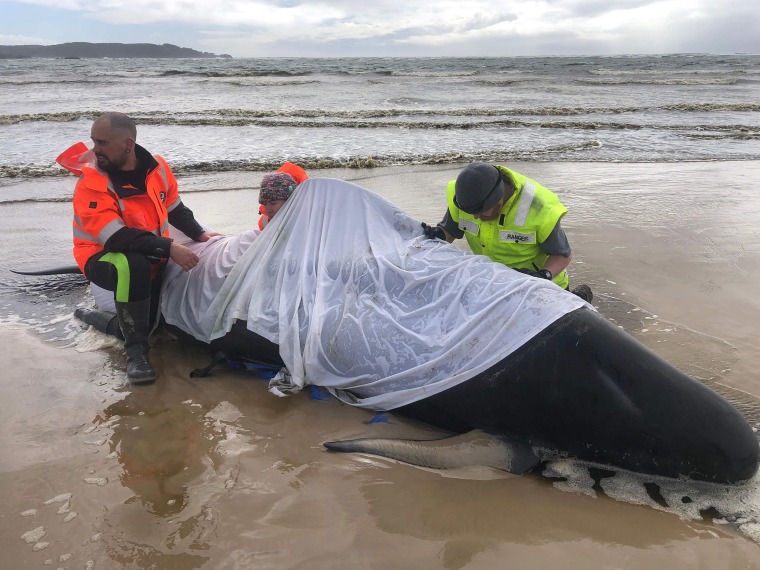Australian wildlife officials began disposing of hundreds of dead pilot whales on Saturday, after concluding there was no longer any hope of rescuing more.
In the country's biggest ever whale beaching, 470 whales were first spotted on a wide sandbank during an aerial reconnaissance of rugged Macquarie Harbor in Tasmania state last Monday.
After days of difficult and dangerous rescue attempts, Australian officials said they had rescued 108 whales, with the rest now believed to have died.
The bodies of the dead whales were being separated into groups and enclosed with water booms to try keep them in one place and isolated from sharks and other predators.
Rob Buck, Incident Controller and Parks and Wildlife Service manager, said 15 whales have already been disposed of at sea, but the operations to dispose of the remaining near 350 mammals was expected to take several days at least.
"Collection and disposal is being undertaken with the assistance of aquaculture companies whose equipment and expertise on the harbor is essential for a timely and effective outcome," Buck said in a statement.
Once beached, the whales only have a matter of days to survive because their organs — no longer surrounded by water — are damaged.
The cause of the mass stranding has yet to be determined.
Download the NBC News app for breaking news and politics
Pilot whales have strong social ties and even if only a few members of a pod veer off course, the others often follow.
Most of the released whales, a gregarious species that lives in deep waters, were expected to "regroup" and recover from the traumatic event, officials said.
